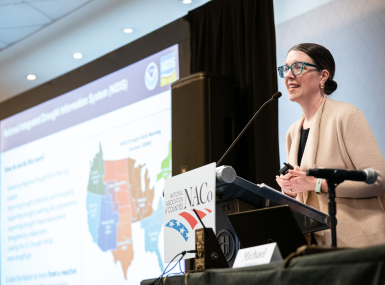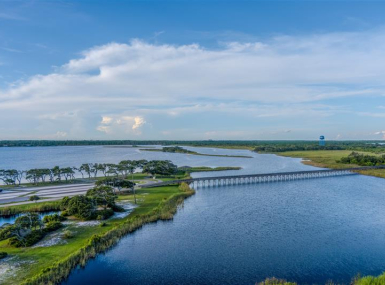EPA accepting letters of interest for WIFIA funding for water infrastructure projects
Upcoming Events
Related News
The U.S. Environmental Protection Agency (EPA) is currently accepting letters of interests of its FY 2020 selection of Water Infrastructure Finance and Innovation Act (WIFIA) program loans. The WIFIA program is a federal loan and guarantee program within EPA designed to accelerate investment in the nation’s water infrastructure by providing long-term, low-cost supplemental loans for regionally and nationally significant projects, including many county water infrastructure projects. EPA has approximately $5 billion in WIFA to finance $10 billion in water infrastructure projects. Prospective borrowers seeking WIFIA credit assistance must submit a letter of interest (LOI) and all required documents by October 15, 2020 via email to wifia@epa.gov. Applicants may also upload the required documents directly to EPA’s SharePoint site.
WIFIA credit assistance can be used for a wide range of projects including drinking water treatment and distribution; wastewater conveyance and treatment; enhanced energy efficiency at drinking water and wastewater facilities; desalination; water recycling; and drought prevention or mitigation projects, many of which involve county owned and maintained water infrastructure. Typically, the WIFIA program helps finance larger water infrastructure projects – primarily those with an anticipated cost of $20 million or more. However, recognizing the need for investment in both large and small communities, Congress stipulated 15 percent of WIFIA funds be set aside each year for small communities serving fewer than 25,000 residents. Such projects have a lower cost threshold for eligibility, only requiring an anticipated cost of $5 million or more.
Counties play an essential role in building and maintaining America’s water infrastructure and invest more than $134 billion overall in infrastructure per year. In addition, more than 70 percent of counties invest in storm sewer systems. Counties are regularly addressing water infrastructure needs, especially when preparing and responding to flooding threats and other water challenges and hazards. We call on the federal government to provide reliable, long-term and substantially increased investment in water infrastructure and protection of water resources.
Related News

NOAA outlines help for counties navigating drought’s growing risks
In April, the National Integrated Drought Information System will launch the Mid-Atlantic Drought Early Warning System, which will help county officials allocate resources and attention to mitigate drought-related disasters.

House Agriculture Committee introduces 2026 Farm Bill
On February 13, House Agriculture Committee Chairman G.T. Thompson (R-Pa.-15) introduced the House version of the 2026 Farm Bill, the Farm, Food, and National Security Act of 2026.

Congress increases oversight of Gulf Coast Restoration Trust Fund
On February 3, Congress passed new funding and authority for an audit and expanded oversight of the Gulf Coast Restoration Trust Fund, which houses federal funds for recovery from the Deepwater Horizon oil spill disaster. The provision was included in the Financial Services-General Government appropriations bill (FSGG), which was one of five included in a minibus package passed by Congress (P.L. 119-75).